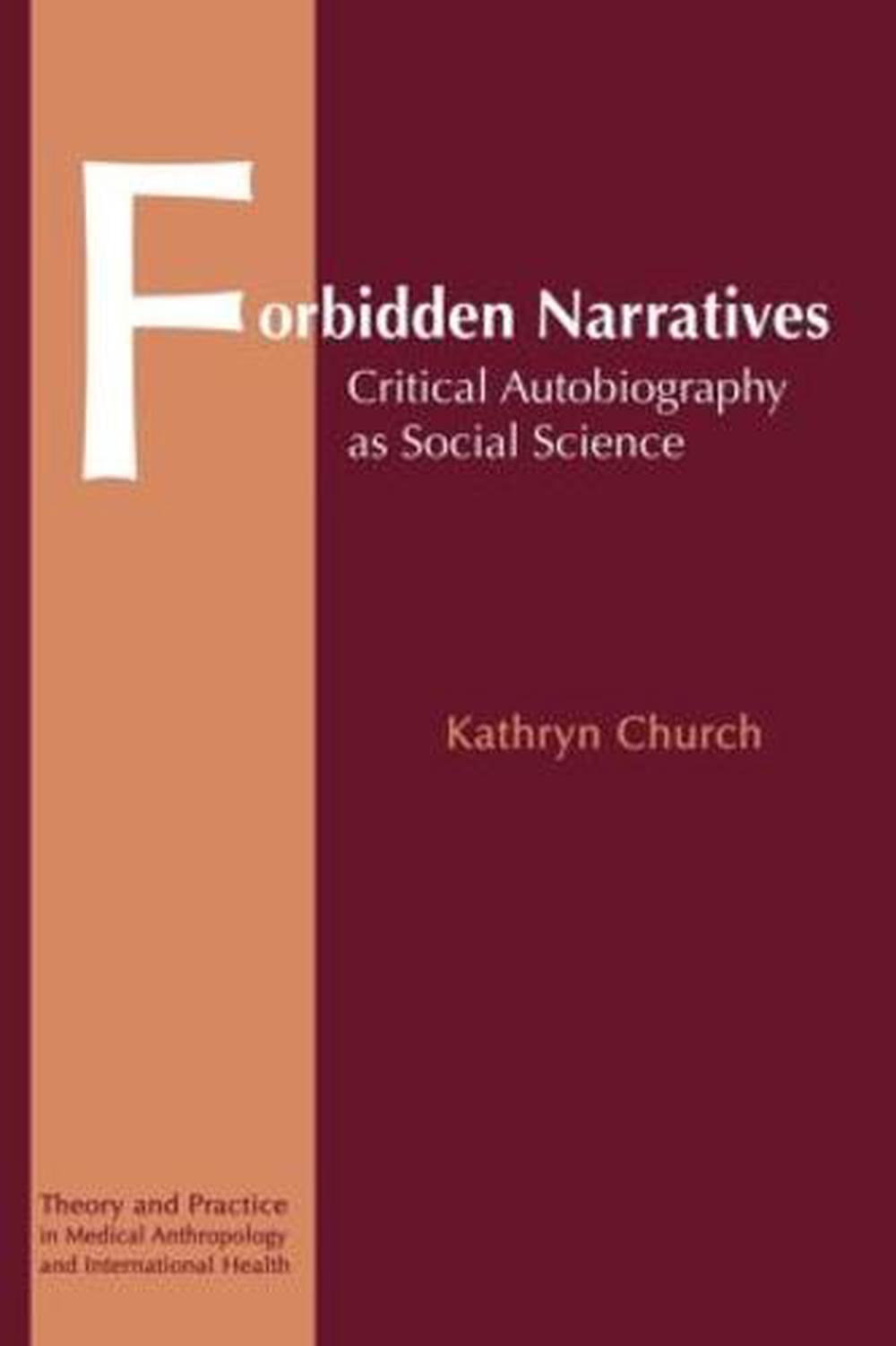
When you click on links to various merchants on this site and make a purchase, this can result in this site earning a commission. Affiliate programs and affiliations include, but are not limited to, the eBay Partner Network.
Forbidden Narratives: Critical Autobiography as Social Science by Kathryn Church

- Item No : 157042832043
- Condition : Brand New
- Brand : No brand Info
- Seller : the_nile
- Current Bid : US $62.63
-
* Item Description
-
The Nile on eBay

Forbidden Narratives: Critical Autobiography as Social Science
by Kathryn Church
Narratives such as these that have been forbidden as outside proper professional standards are now claiming and receiving attention. "Forbidden Narratives" has the power to speak to a broad audience of not only mental health professionals but also policy makers, sociologists and students of feminism. It is about the breaking up of professional discourse. It demonstrates and signals drastic changes in the social sciences.
"Forbidden Narratives" explores overlapping layers of voices that convey the social relations of psychiatric survivor participation within a community mental health service system. It is written from the perspective of a woman who, as a mental health professional in Toronto, had a physical and mental breakdown during the course of her work. Ironically, the author had plunged into the very system she had entered as a professional, a health researcher, and an activist.FORMAT
PaperbackLANGUAGE
EnglishCONDITION
Brand New
Publisher Description
Forbidden Narratives: Critical Autobiography as Social Science explores overlapping layers of voices and stories that convey the social relations of psychiatric survivor participation within a community mental health service system. It is written from the perspective of a woman who, in the course of working with the survivor movement, had a physical and emotional breakdown. Ironically, the author found herself personally confronted with issues she typically dealt with only from a distance: as a mental health professional, a researcher, and an activist.
The author of this volume writes herself into her work as a major character. Narratives such as this have traditionally been forbidden as outside proper professional standards. Now they are claiming and receiving attention. Forbidden Narratives has the power to speak to a broad audience not only of mental health professionals but also policy makers, sociologists and feminists. It is about the breaking up of professional discourse. It demonstrates and signals profound changes in the social sciences.Back Cover
Forbidden Narratives: Critical Autobiography as Social Science explores overlapping layers of voices and stories that convey the social relations of psychiatric survivor participation within a community mental health service system. It is written from the perspective of a woman who, in the course of working with the survivor movement, had a physical and emotional breakdown. Ironically, the author found herself personally confronted with issues she typically dealt with only from a distance: as a mental health professional, a researcher, and an activist. The author of this volume writes herself into her work as a major character. Narratives such as this have traditionally been forbidden as outside proper professional standards. Now they are claiming and receiving attention. Forbidden Narratives has the power to speak to a broad audience not only of mental health professionals but also policy makers, sociologists and feminists. It is about the breaking up of professional discourse. It demonstrates and signals profound changes in the social sciences.
Table of Contents
Chapter I: Beginning from 'I' Chapter II: Speaking Chapter III: Acting Chapter IV: Knowing Chapter V: Falling Off the Fence Chapter VI: Disrupting the 'Rational' Chapter VII: Reading the Silences Chapter VII: Returning to 'I'
Review
"Social Science is changing quickly in response to a variety of pressures. At the core of this change is a resurgence of the subjective: using the self as data' in the argument as opposed to the older view from anywhere.' Forbidden Narratives both exemplifies and advances this shift. Kathryn Church does not simply exhort her colleagues to change how they work; rather, she demonstrates change in herself, tracing it down to the bone, literally in her case."
-Arthur W. Frank of University of Calgary, CanadaDetails
ISBN2884492135Author Kathryn ChurchShort Title FORBIDDEN NARRATIVESSeries Theory and Practice in Medical Anthropology and InternationaLanguage EnglishISBN-10 2884492135ISBN-13 9782884492133Media BookFormat PaperbackDEWEY 362.220Series Number 2Year 1996Publication Date 1996-02-28Imprint Gordon & Breach Science Publishers LtdSubtitle Critical Autobiography as Social SciencePlace of Publication AmsterdamCountry of Publication NetherlandsEdition 1stIllustrations black & white illustrationsPages 176Publisher RoutledgeDOI 10.1604/9782884492133Audience College/Higher EducationUK Release Date 1995-12-15


















